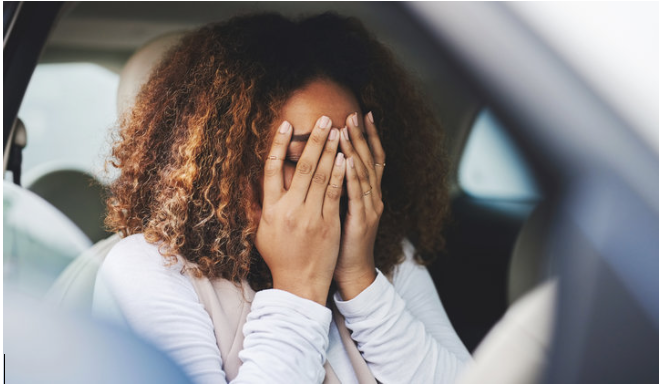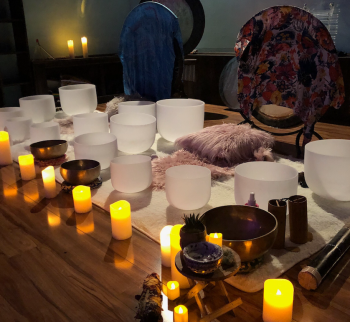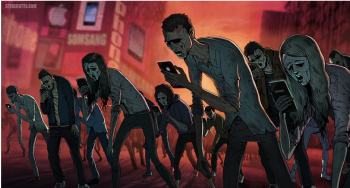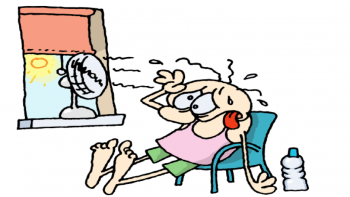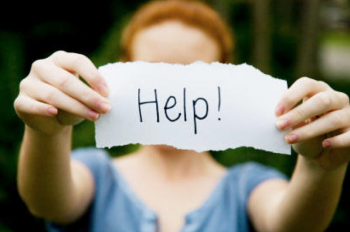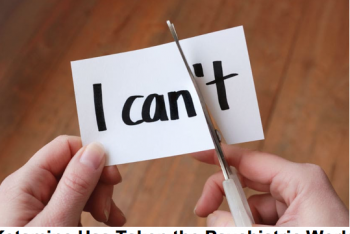WELLNESS--If you experience anxiety, just flipping on the news these days can be enough to make you feel incredibly anxious for a brief period of time (or even for the rest of the day, let’s be real). Other times, overwhelming, anxious feelings can come on suddenly and without provocation.
Some people casually refer to periods of intense anxiety as “anxiety attacks”; others may say they’re having a panic attack. But the two have entirely different meanings. So what’s the deal? Below, experts explain the difference between having a panic attack and an anxiety attack and how to manage each:
Anxiety can mean different things to different people
“Panic attacks are a clinical term, whereas anxiety is not,” said Alice Boyes, author of The Healthy Mind Toolkit. “Having an anxiety attack can mean different things to different people.”
Christina Boisseau, an associate professor of the department of psychiatry and behavioral sciences at the Feinberg School of Medicine at Northwestern University said the term “anxiety attack” typically refers to a more specific experience, often triggered by something unique to the individual.
“When someone says they’re having an anxiety attack, it’s more a colloquial term, but usually what they are referring to is that they’re anxious about something that’s happening, whether it be with school, work or your relationships,” Boisseau said. “There is an identifiable stressor. And when people get really anxious or worried, they can experience heightened physical symptoms of anxiety such as their heart racing and chest tightening.”
Panic attacks will pop up out of nowhere
While anxiety is something you typically experience in anticipation of or in reaction to something, Boisseau said a panic attack often comes on for no apparent reason.
“Panic attacks are unexpected rushes of intense fear or discomfort that come with some scary symptoms ― your heart starts racing, you’re dizzy, you feel flushed or you get a sudden shortness of breath,” she said. “Symptoms peak very sharply within a matter of minutes and don’t usually last that long.”
Boyes added that some people even suffer from nocturnal panic attacks, where they wake up from a deep sleep having feelings of panic for no reason at all. And although panic attacks can pass more quickly than general feelings of anxiety, it takes some time for your body to release the chemicals and adrenaline that’s accumulated with a panic attack.
“You can feel not quite yourself for a bit afterward,” Boyes said.
The Diagnostic and Statistical Manual of Mental Disorders (more commonly known as the DSM-5) written by the American Psychiatric Association is used to diagnose mental health issues in the United States. According to the latest edition of the DSM-5, a panic attack is characterized by four or more of the following symptoms:
- Palpitations or a pounding heart
- Sweating
- Muscle trembling or shaking
- Shortness of breath or sensations of smothering
- Choking sensations
- Chest pain or discomfort
- Nausea or abdominal distress
- Dizziness or feeling lightheaded and faint
- Derealization (feelings of unreality) or depersonalization (feeling detached from yourself)
- Fears of losing control or going crazy (literally feeling as if you might lose your mind)
- Fear of dying
- Numbness, tingling sensations
- Chills or hot flashes
If you have panic attacks on a regular basis, you may have a panic disorder
Boisseau said most people will have a panic attack at some point in their life, but only 2 to 3 percent of the population will develop a panic disorder.
“Panic disorder is basically a fear of fear,” Boisseau said. “People who have panic disorder are afraid of the physical feelings of panic itself. They are afraid something is wrong with them, like they are dying or ‘going crazy.’ Essentially they worry about the implications of having a panic attack.”
“A panic disorder is characterized by fear of having panic attacks,” Boyes noted. This fear of waiting for a panic attack to occur results in people dodging specific places (such as planes or enclosed or extremely crowded spaces) or situations (like driving) where attacks have happened before to prevent a reoccurrence.
“They think to themselves, ‘I’m going to have a panic attack because I’ve had one before here,’” Boisseau said. “But that avoidance ends up making them more anxious in the long run.”
How to manage anxiety and panic attacks
 Whether you’ve seen a specialist and have a clinical diagnosis of panic attacks (or panic disorder) or have anxiety and experience bouts of intense stress, the coping mechanisms are similar, Boisseau said.
Whether you’ve seen a specialist and have a clinical diagnosis of panic attacks (or panic disorder) or have anxiety and experience bouts of intense stress, the coping mechanisms are similar, Boisseau said.
“From a treatment perspective, it’s not vital to establish whether you have panic or anxiety,” she said.
Both Boisseau and Boyes said practicing cognitive behavioral therapy, often called CBT, with a mental health expert is extremely effective when treating someone who deals with anxiety or panic attacks. CBT aims to address the issues someone has avoided due to their anxiety, with the goal to decrease anxiety in these situations over time. Boisseau added that, in some cases, selective serotonin reuptake inhibitors (SSRIs) such as Prozac and Zoloft can help with treatment.
Lifestyle habits and in-the-moment techniques can also be of assistance when you’re experiencing a panic attack or an episode of extreme anxiety.
“The easiest way to deal with feelings of anxiety is to practice slow breathing,” Boyes said, emphasizing that it’s important to practice this technique before you have an attack, so you know what to do in the moment. “Focus on your breath out. Act as if you’re blowing up a balloon and then do a long, slow breath out, pushing all of the air out before breathing in normally. Do this for a few minutes when you have anxiety or a panic attack to help turn things around.”
Regardless of what route you go for therapy or treatment, know that anxiety and panic attacks are very treatable, Boisseau said.
“People who suffer from anxiety and panic can make great gains and improvements to their lives,” she said.
(Colleen Travers writes for HuffPost [[huffingtonpost.com]] … where this piece was first posted.)
-cw

